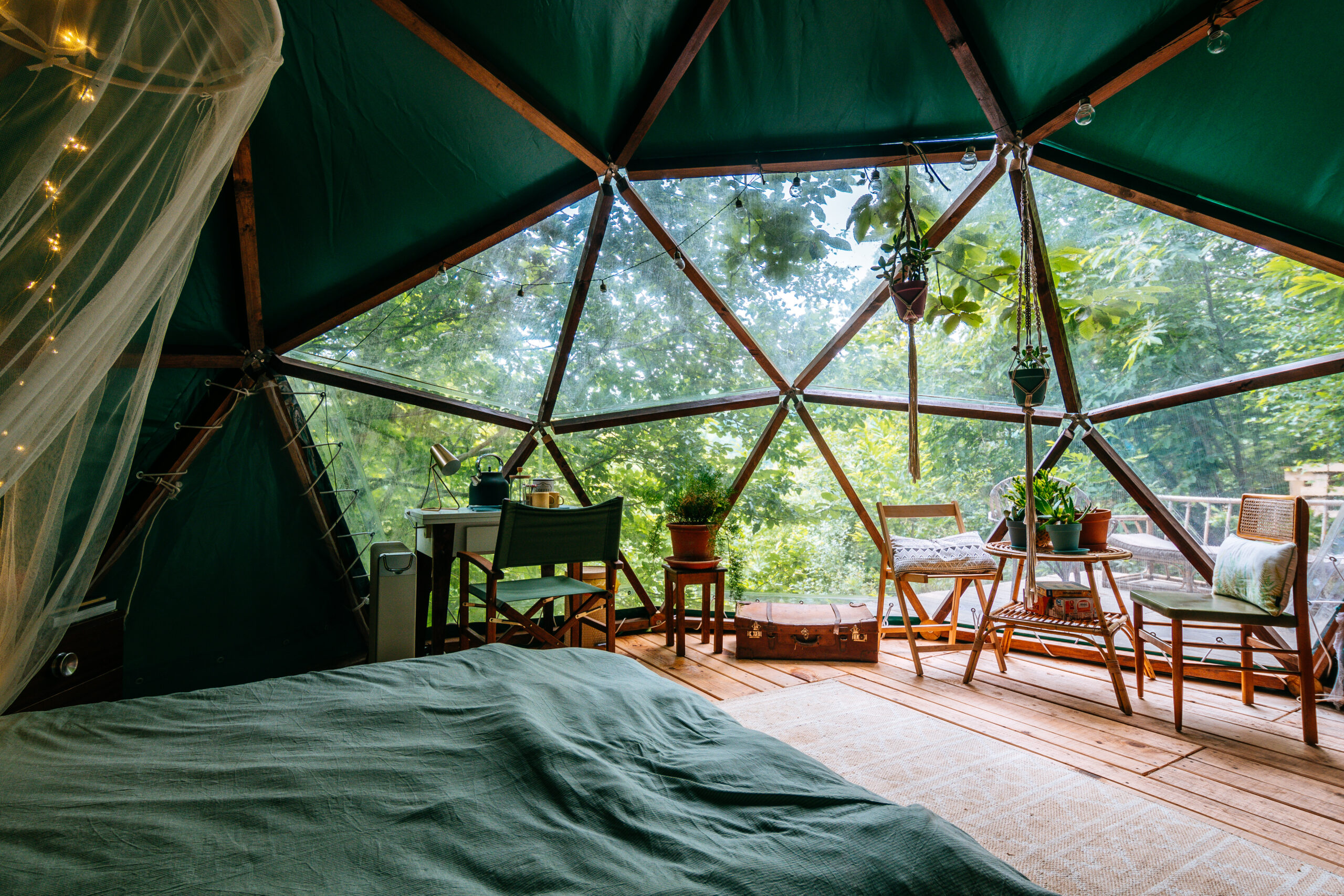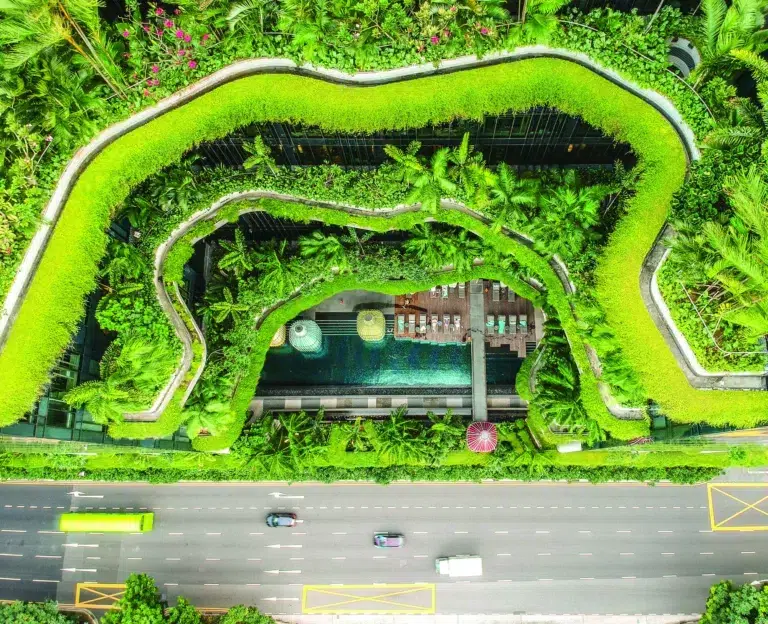News roundup: Glamping architecture embraces nature with comfort, plus other updates

For PropertyGuru’s news roundup, contemporary glamping architecture embraces nature with comfort. In other stories, four scenarios of how CPF accrued interest can impact your earnings if you sell your home in Singapore, and some major innovations and breakthroughs in various energy-based applications.
Architecture for glamping: Embracing nature with comfort
Camping, as defined in dictionaries, involves temporarily staying outdoors, setting up makeshift accommodations, and settling in natural surroundings. In architecture, tents symbolize these aspects, representing a typology that has endured across centuries and cultures, often linked with notions of impermanence and vulnerability.
In light of this common understanding, the term ‘glamping’ emerged in the early 2000s, blending ‘camping’ with ‘glamour,’ suggesting a fusion of camping with luxurious amenities. However, despite its recent popularization, the concept is far from original. Camping has not always been seen as the antithesis of luxury.
The Mongols were famous for their yurts. Historical accounts depict Genghis Khan’s tent as exceptionally grand and elaborate, mounted on a platform with 9-meter diameter wheels and pulled by a cart drawn by 22 oxen. Centuries later, even the British royal family camped in luxurious structures during hunting safaris in India and Africa, complete with bathrooms and comfortable furniture. This tradition inspired the development of campaign furniture, also known as Bivouac furniture, characterized by its compact and minimalist design, often foldable or stackable for easy transport.
ArchDaily notes that in this context, it is important to highlight that contemporary glamping, while not a novel idea, distinguishes itself in many aspects from the luxurious camps of yesteryears. These structures are meticulously crafted, emphasizing sustainability, aesthetics, and user experience.
CPF accrued interest: 4 scenarios of how it can affect Singaporean property owners
Central Provident Fund (CPF) accrued interest is something you need to think about if you’re thinking of selling your first home. Many first-time home sellers are at a loss when they learn that their net profits from their sale are nowhere near what they initially financed due to CPF accrued interest.
If you never sell your home, you will not need to pay back your accrued interest and this is not a matter of concern for you. However, you can choose to top up your CPF if you are concerned about the drain on your CPF funds.
This PropertyGuru Singapore article will walk you through possible scenarios involving CPF accrued interest and how they may impact your earnings if you sell your home. Also, it’ll answer questions such as “When does CPF accrued interest stop” and “Should I pay back CPF accrued interest”. Ready to sell your property?
What is the future of energy-based applications?
The future of energy-based applications is poised for significant transformation through innovations and breakthroughs. As the global landscape evolves, there is a growing emphasis on developing sustainable and energy-efficient solutions to meet the increasing power demand.
Energy-based applications require various technologies and processes that harness energy sources to power the world. The size of applications can be as large as the generation of electricity to power basic household appliances. There are a plethora of applications and technologies dependent on energy sources.
The future of energy-based applications lies in using renewable energy resources, manufacturing energy-efficient and sustainable products, and generating power in the most environment-friendly way. The future lies in being environment-friendly, sustainable, and efficient.
Housing.com presents major innovations and breakthroughs in various applications and products where carbon footprint, sustainability, and efficiency are considered.
The Property Report editors wrote this article. For more information, email: [email protected].
Recommended
6 green real estate projects reshaping Asia’s future
Developers are being incentivised to push a green agenda into daring new realms
ARES White Paper Volume 3: The era of adaptive reinvention
Pioneering sustainable and innovative practices in urban development
ARES White Paper Volume 2: Unravelling the power of data revolution in real estate
Insights on proptech, smart cities, and sustainable development
ARES Digital White Paper Volume 1: The fundamentals of responsible building
Green and climate heroes join forces to discuss how Asia Pacific can weather the current environmental crises and the looming effects of climate change






